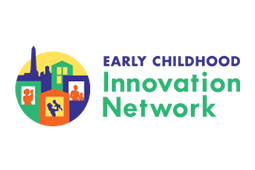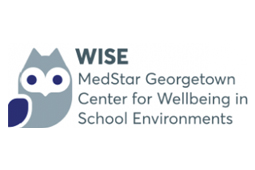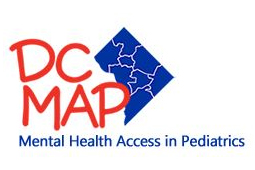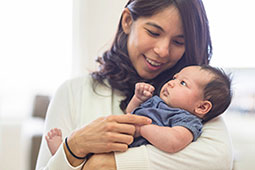
Our mission is to serve children and families from the diverse communities of the Washington, D.C., region through outstanding clinical care, training for the next generation of child and family mental health providers, research to advance our capacity to allow every family to thrive, and advocacy on behalf of the most vulnerable children and families.
Our clinical services prioritize:
- family well-being
- holistic approaches to the prevention of mental health challenges
- promotion of brain health
- treatment of acute concerns using research-based approaches
Our providers

Expert psychiatry care
Getting the care you need starts with seeing one of our psychiatrists.
Clinical programs
-
Center for Children and Families (Outpatient Child & Adolescent Psychiatry)
Our Approach
At the MedStar Georgetown Center for Children and Families, we prioritize holistic and whole-family approaches to supporting optimal outcomes for children and adolescents with mental health concerns. Our multidisciplinary, multicultural team of child, adolescent, and family psychiatrists, psychologists, and therapists work together to provide outstanding diagnostic evaluations and to create treatment plans that support family wellbeing. Treatments options offered are individual and group-based for children and their parents and caregivers, as well as a range of supportive interventions to optimize brain health and build strong relationships.
Our Clinical Services
In the Center for Children and Families, we provide the following direct clinical services for children, adolescents, parents, and caregivers:
- Psychiatric diagnostic assessment and medical treatment for children, adolescents, and their parents and caregivers
- Individual psychotherapy for children, adolescents, and their parents and caregivers
- Family therapy and couples’ therapy
- Groups therapies
- Resilience Builder Program®
Resilience Builder Program® is a group therapy based on Cognitive Behavioral Therapy designed to build children’s social competence and self-regulation. This group is designed for children and adolescents ages 7-14 (3rd - 8th grade) with a range of clinical concerns who hope to develop social skills, coping skills, and flexibility in thinking. Groups are comprised of between three and eight children, and this approach allows for real-time feedback as well as opportunities to practice skills with peers. Parents receive coaching about how to support the learning taking place in groups. All groups are led by experienced licensed psychologists and therapists.
Alvord, M. K., Zucker, B., & Grados, J. J. (2011). Resilience Builder Program for Children and Adolescents: Enhancing Social Competence and Self-Regulation. Champaign, IL: Research Press.
- Regulating Together Group Therapy
Regulating Together is an outpatient group program designed to foster adaptive emotion regulation skills for children (ages 8 - 12) and adolescents (ages 13 - 18). This group program includes groups for children/adolescents to learn emotion regulation skills as well as groups for parents to learn ways to coach and support their child's emotion regulation. Regulating Together groups incorporate cognitive behavior therapy, applied behavior analysis, mindfulness, and behavior management training approaches. Skills taught in the program include relaxation, anger management, problem solving, and flexibility. This program is designed for children and adolescents with emotion regulation difficulties related to a range of clinical concerns. The group setting and family-based approach support the generalization of skills taught to outside of the group (e.g., school, social settings) as well as the continued use of skills after the group ends. Regulating Together was developed by Rebecca Shaffer, PsyD at Cincinnati Children's Hospital. - Mindfulness Classes
Mindfulness is a powerful practice that improves emotional regulation and positively impacts children, adolescents, and adults who may struggle with mood, anxiety, attention, sleep, and other clinical issues. We offer weekly group-based classes that introduce young people to the basics of mindfulness in a supportive environment led by an experienced therapist and mindfulness facilitator. - Parent Education and Support Group
Parenting can be extremely stressful, and parents of children with emotional and behavioral difficulties can feel especially overwhelmed. We provide two group formats to support parents in our Center:- Family Wellbeing Group
A weekly drop-in group led by our clinical experts covering key themes in family wellbeing including sleep, exercise, nutrition, mindfulness, healthy use of digital media, communication and limit-setting. - Parent Management Training Group
A 6-week structured group led by an experienced clinical psychologist that focuses on building and practicing parenting effective techniques in working with elementary school-aged children with behavioral difficulties.
- Family Wellbeing Group
- Resilience Builder Program®
-
LAUNCH Program for Emerging Adults
The LAUNCH Program is a multidisciplinary outpatient clinic designed to meet the needs of emerging adults between the ages of 16-24 years old with mental health concerns. The program’s clinicians strive to collaboratively develop individualized treatment plans and to support clients in making values-based decisions that move them towards their goals.
LAUNCH addresses the many changes of emerging adults including those occurring in the brain, socially, emotionally, financially, and relationships with family, friends, and romantic partners, leisure activities, and cultural beliefs, through treatment and support that focuses on cognitive changes, social/emotional development, identity exploration, and mental health and wellbeing. -
Infant and Early Childhood Mental Health Program
The Infant and Early Childhood Mental Health Program at Medstar Georgetown University Hospital is comprised of a dedicated, multidisciplinary team of clinicians with specialized training to support the wellbeing of children between the ages of 0-8-years-old. Clinicians work with caregivers and their children to support healthy development and tackle problems that arise during early childhood. We use a strengths-based approach to build upon the assets of each family and develop an individually tailored treatment. Our goal is to optimize healthy development by intervening early and promoting positive relationships.
After an initial assessment, children and caregivers can find evaluation and/or treatment for a range of issues, including:
- Tantrums and behavior problems
- Separation anxiety
- Concerns about development
- Autism Spectrum Disorder (ASD)
- Sleep and Eating difficulties
- Attention Deficit/Hyperactivity Disorder (ADHD)
- Processing grief and trauma
- Parent Stress
- Groups for Parents of Neurodiverse Children
The Infant and Early Childhood Program offers a range of services including:
- Individual Therapy for children and their caregivers
- Psychiatric assessment and diagnosis with treatment recommendations
- Family and group supports for parents
Our team is trained in a number of effective, evidence-based practices:
Parent-Child Interaction Therapy (PCIT)
PCIT is an evidence-based treatment for young children with behavioral problems. PCIT is done across two treatment phases. The first phase of treatment focuses on establishing warmth in your relationship with your child through learning and applying skills proven to help children feel calm, secure in their relationships with their parents, and good about themselves.
The second phase of treatment will equip you to manage the most challenging of your child's behaviors while remaining confident, calm, and consistent in your approach to discipline. In this phase, you will learn proven strategies to help your child accept your limits, comply with your directions, respect house rules, and demonstrate appropriate behavior in public.
Child Parent Psychotherapy (CPP)
CPP is a type of therapy for young children ages 0-6 years old with their adults/caregivers who have experienced overwhelming stress or disruptions in their relationships with adults. CPP supports family strengths and relationships, helps family heal and grow after stressful experiences while respecting family and cultural values. CPP may help when:
- Children have been through scary or painful events such as loss of a loved person, separation, serious medical procedures, abuse, or violence at home or in the community
- Children show difficult behaviors
- Children have a change in placement or caregivers
- Family members have physical health or mental health difficulties
- Caregivers would like help with parenting and improving parent-child relationships
Circle of Security-Parenting (COS-P) ™
At times all parents feel lost or without a clue about what our child might need from us. Imagine what it might feel like if you were able to make sense of what your child was really asking from you. The Circle of Security Parenting™ program is based on decades of research about how secure parent-child relationships can be supported and strengthened. The program is delivered either in a group or individually and helps parents to:
- Understand a child’s emotional world by learning to read the emotional needs
- Support a child’s ability to successfully manage emotions
- Enhance the development of a child's self esteem
- Honor innate wisdom and desire for children to be secure
Trauma-Focused Cognitive Behavioral Therapy (CBT)
TF-CBT is a structured, short-term treatment model that effectively improves a range of trauma-related outcomes in 8-25 sessions. Although TF-CBT is highly effective at improving youth posttraumatic stress disorder (PTSD) symptoms and diagnosis, a PTSD diagnosis is not required in order to receive this treatment. TF-CBT also effectively addresses many other trauma impacts, including depression, anxiety, cognitive and behavioral problems, as well as improving the participating parent’s or caregiver’s personal distress about your child’s traumatic experience, effective parenting skills, and supportive interactions with your child.
The Early Childhood Program works closely with the Women’s Mental Health Clinic at MedStar Georgetown University Hospital to support the mental health needs of parents/caregivers. The program takes part in a continuum of mental health services through its partnership with the Early Childhood Innovation Network (ECIN) and affiliated community organizations.
For more information or to schedule an initial appointment, please call 202-944-5400.
-
Center for Wellbeing in School Environments (WISE)
The WISE Center supports schools with comprehensive approaches for mental wellbeing. With a multidisciplinary, multi-cultural team of mental health professionals, the program provides multi-tiered support to over 30 public schools in Washington, D.C. through five primary services that promote improvements in academic and mental health outcomes:
- Mental health treatment services and support for students and families
- Professional development for educators
- Classroom coaching
- Consultation with school leaders & support staff
- Teacher wellbeing initiatives
-
Resources for Parents
-
Intensive Outpatient Program for Adolescents
Our adolescent IOP is an intensive outpatient program for adolescents ages 13-17 who need more support than traditional once-a-week outpatient therapy can provide.
-
Intensive Outpatient Program for Young Adults
For young adults between the ages of 18 and 26, the Department of Psychiatry at MedStar Georgetown university Hospital, Division of Child and Adolescent Psychiatry, offers an intensive, multidisciplinary outpatient program designed to provide a higher level of care and support to help young people build the skills they need to manage their symptoms and navigate the transition to adulthood.
Community-based initiatives
Training
MedStar Georgetown University Hospital
Child and Adolescent Clinical Psychology Doctoral and Social Work Training Program
2024 - 2025
MedStar Georgetown's Department of Psychiatry is a multidisciplinary, community-and family-focused organization committed to strengthening the wellbeing of children and families through a culturally humble, and healing-informed approach. Training program includes 3 tracks: Outpatient Mental Health, School-Based Mental Health, Adult/Health Psychology.
-
Program Details
-
Outpatient track
MedStar Georgetown's Division of Child and Adolescent Psychiatry, within the Department of Psychiatry, provides outpatient mental health services to youth and young adults ages 3-24 and their families. Clinical psychology doctoral trainees deliver diagnostic and psychotherapy services for child, adolescent, and young adult clinical populations within our outpatient clinic setting and, in certain cases, within a medical setting (e.g., primary care). In addition to engaging in weekly supervision with licensed clinical psychologists, trainees participate in supplementary trainings with other members of our multidisciplinary faculty, including psychiatrists and social workers.
-
Health Psychology/Adult Mental Health track
This track is a hybrid of the School-Based and Outpatient tracks. Trainees will provide treatment to clients in outpatient clinic sites via Health Psychology model of care and educators in DC public and public charter schools. Subspecialties: Women's Mental Health, Fort Lincoln Family Medicine, Lombardi Cancer Center.
-
School Based Mental Health track
Trainees will gain clinical experience within our partner school sites in Wards 4, 5, 7 and 8 of Washington, DC. Sites include DC public and public charter schools (elementary, middle & high schools), environments where mental health resources may be limited and/or increasingly beneficial to students, families and staff. Trainees will provide direct and indirect support to students ages 3 to18.
Note: Our Externship is intended for advanced doctoral students (e.g., rising 3rd year or above) in Clinical psychology, Counseling Psychology or School Psychology.
Individual supervision is facilitated by attending psychologists. Training includes weekly didactics and quarterly group supervision.
-
-
Qualifications
Our Externship is intended for advanced doctoral students (e.g., rising 3rd year or above) in Clinical psychology, Counseling Psychology or School Psychology with treatment experience.
School Based and MGUH tracks: Preference is given to applicants with experience working with children, as well as those with experience in schools or other multidisciplinary settings.
Adult/Health Psychology tracks: Preference is given to applicants with noted interest in Health Psychology.
-
Location
*Locations differ based on the track. Please refer to the brochure for the specific track.
-
Application Deadline & Submission
January 8 - February 12, 2024 or before. Offers are extended on a rolling basis; however, externs are not required to accept or decline offers until Consortium Match Day.
Please refer directly to brochure(s) for submission requirements.
-
Contact Information
Denisha Carter, PsyD & Megan Polanin, PhD Co-Directors of Clinical Training MedStar Georgetown University Hospital, Department of Psychiatry
Denisha.L.Carter@gunet.georgetown.edu Dr. Denisha Carter
Megan.K.Polanin@gunet.georgetown.edu Dr. Megan Polanin
Research
With our research efforts, we focus on developing impactful, collaborative, and culturally competent strategies to prevent mental illness, promote brain health, and optimize early and effective intervention for children and families.
Our Team of Researchers
In the Division of Child and Adolescent Psychiatry, we conduct research that focuses on developing impactful, collaborative, and culturally competent strategies to prevent mental illness, promote brain health, and optimize early and effective intervention for children and families. Our team of researchers focuses on health services research, intervention development, community-based participatory research, and implementation science. Please meet our outstanding researchers and learn more about their scholarly interests and activities here.
-
Emily Aron, MD
Emily Aron, MD, is a child, adolescent and adult psychiatrist with a particular interest in infant and early childhood mental health. After completing her general residency at the Icahn School of Medicine at Mt. Sinai Hospital, she completed her child and adolescent fellowship at NYU.
-
Matthew Biel, MD
Matthew Biel, MD, MSc is Chief of the Division of Child and Adolescent Psychiatry at MedStar Georgetown University Hospital and Professor of Clinical Psychiatry and Pediatrics at Georgetown University School of Medicine. He co-directs the Early Childhood Innovation Network, a citywide effort to improve developmental outcomes for children and families in Washington, DC. Dr. Biel was selected as an Aspen Ascend Fellow in 2018. His work addresses the impact of adversity and stress upon children and families, with research centering on reducing health disparities, improving access to mental health care for underserved children and families through projects based in primary care and school settings, and developing clinical interventions focusing on trauma and resilience, anxiety, and autism. His clinical efforts focus on children and adolescents with anxiety and stress disorders, trauma-related conditions, autism spectrum disorders, and complex medical illnesses. He has published numerous articles and book chapters and is involved nationally in psychiatric education and advocacy for children’s mental health. He co-chairs the Committee on Health Promotion and Prevention at the American Academy of Child and Adolescent Psychiatry. Dr. Biel received his medical degree and a master’s degree in Community Medicine at Mount Sinai School of Medicine. He trained in general psychiatry and child and adolescent psychiatry at New York University School of Medicine.
Areas of Research: Health disparities, Mental health interventions in pediatric primary care, Coexisting medical and psychiatric conditions in children, Autism spectrum disorders, Trauma, Anxiety and mood disorders in children and families.
-
Erica Coates, PhD
Erica E. Coates, Ph.D., is a licensed psychology associate at MedStar Georgetown University Hospital and an assistant professor of Clinical Psychiatry at Georgetown University Medical Center. Dr. Coates serves as the director of the Family Wellbeing Program (a multidisciplinary, center-based program supporting caregiver, child, and staff wellness and mental health) at early childhood education centers in Wards 7 and 8. Dr. Coates has published several articles on the role of paternal involvement and coparenting in child development, and her research has been externally supported by several entities including the National Institute on Minority Health and Health Disparities, the American Psychological Association, and the American Psychological Foundation. Dr. Coates received her doctoral degree in clinical child psychology from the University of South Florida and received specialized training in trauma-informed family treatment at the APA-accredited VA Maryland Health Care System/University of Maryland School of Medicine Consortium. Dr. Coates completed her postdoctoral training at the University of Maryland – College Park as a Presidential Postdoctoral Fellow.
-
Dionne Smith Coker-Appiah, PhD, MAED
Dionne Smith Coker-Appiah, PhD, MAED, is an associate professor in the Department of Psychiatry. She is affiliated with the Division of Child & Adolescent Psychiatry and provides clinical care for adolescents and emerging adults. Dr. Coker-Appiah has also engaged in a focused program of research that has focused on Rural Adolescent Dating Violence Prevention and Rural Adolescent Mental Health. Her research program has enabled her to build a comprehensive, domestic and international, Adolescent Dating Violence (ADV) Prevention research program, utilizing community-based participatory research approaches. More specifically, her research program is designed to: (a) prevent ADV and the associated health implications (mental, sexual, physical) among rural African Americans and international youth of Color, (b) build effective and sustainable community partnerships that build community capacity to address these issues, and (c) design culturally and geographically appropriate ADV prevention interventions. She directs the Adolescent Dating Violence Prevention Laboratory, which, in addition to conducting research, provides training and mentoring to numerous students (undergraduate, graduate, medical) and fellows. Her research has been funded by both federal and non-federal grants. Dr. Coker-Appiah’s most recent research has focused on building community partnerships to promote mental health and prevent ADV in rural North Carolina (Project LOVE) and Ghana, West Africa (GEAR UP-Ghana). She is also currently exploring, from an intergenerational and key stakeholder perspective, knowledge, perceptions and beliefs about mental health in rural communities (Minding Our Business). Dr. Coker-Appiah has dedicated her career to engaging in innovative research designed to prevent ADV and promote the mental health of youth in rural communities of Color. She is passionate about using her clinical skills and research and prevention efforts to ensure that all adolescents are mentally healthy and able to live healthy, violence-free lives.
-
Celene Domitrovich, PhD
Celene E. Domitrovich is the director of Research and Innovation for the Early Childhood Innovation Network (ECIN). This collaborative co-led by Children’s National Medical Center and MedStar Georgetown University Hospital joins health and education providers, community-based organizations, researchers, advocates, and family leaders in order to promote resilience and wellbeing in families and children from pregnancy through age 5 in Washington, D.C.. Dr. Domitrovich is also an associate research professor at Georgetown University and has research appointments at Penn State University and the Johns Hopkins School of Pubic Health.
Dr. Domitrovich is a prevention scientist who studies resilience and social-emotional learning. She obtained her doctorate in Child Clinical Psychology from Penn State University. Dr. Domitrovich is the developer of the preschool version of the Promoting Alternative Thinking Strategies (PATHS) Curriculum. She has conducted randomized trials of this and several other school-based SEL programs. In addition to expanding the evidence base of preventive interventions, Dr. Domitrovich is dedicated to developing strategies that address the factors that influence the implementation process. She has published numerous articles in peer-reviewed journals and written several federal reports on evidence-based interventions and implementation science. She served two terms on the board of the Society for Prevention Research and received the CASEL Joseph E. Zins award in 2011 for Action Research in Social Emotional Learning.
-
Janaire (Jay) Hawkins
Jay Hawkins (she/her) is a community researcher dedicated to social justice, mental health promotion and transformative systems change. Jay earned a Bachelor of Science in Psychology and Business Administration from Howard University in Washington, D.C. She works diligently to uphold the historic legacy of her alma matter by always aiming to embody its motto of “excellence in truth and service.” Jay is profoundly committed to the service and liberation of African-Diasporic, and other BIPOC communities. She thinks of herself as a narrative shifter helping to creatively inspire forward change through the process of reimaging equity and justice, while authentically partnering with the stakeholders/communities that are most impacted by unjust systems.
Previously, she served as Special Projects Manager, then Cyber Mentors Program Manager within the Office of Ethnic Minority Affairs (OEMA) and the Office on AIDS respectively, at the American Psychological Association (APA). Presently, Jay works for Medstar Georgetown University Hospital in the Psychiatry Department as the Community Research Lead for the Early Childhood Innovation Network (ECIN). Her primary role at ECIN includes designing and directing a multi-site mindfulness-based intervention program, collaboratively leading community based participatory research strategy, as well as championing various DEI (Diversity, Equity and Inclusion) and co-creation strategic efforts. Jay is also a certified fitness trainer (CPT) and mindfulness-based meditation teacher. In her time at ECIN, Jay has supported 10 behavioral health and equity promotion projects across early education, public health and community sectors. In all her work, Jay aims to spotlight the assets, strengths and resiliency already present within communities of color.
-
Megan McCormick, PhD
Dr. Megan McCormick is the director of Programs of The MedStar Georgetown Center for Wellbeing in School Environments (The WISE Center). Her interests include large-scale program development and implementation aimed at improving public health outcomes for youth. She has worked extensively within community-based organizations on improving public health causes and advocating for youth mental health issues within the Washington, D.C., metro area. Her research background has focused on psychological factors that impact health outcomes, such as pain management and medication adherence, as well as the design, implementation, and evaluation of behavioral interventions to improve access to mental healthcare in primary healthcare settings and prevent negative medical outcomes in pediatric chronic illness populations. She is the co-founder and former co-executive director of InSite Solutions and is a member of the faculty within Georgetown University's School of Medicine. Dr. McCormick received her Ph.D. from the University of Georgia, completed her pre- and post-doctoral fellowships at Children's National Medical Center, and is a licensed child psychologist in Washington, D.C.
-
Shy Porter, PhD, LMFT
Shy Porter, PhD, LMFT, provides clinical care in our outpatient program and as an integrated clinician within OBGYN as part of the MedStar Health Safe Babies Safe Moms initiative. She is also a member of the Safe Babies Safe Moms clinical research team. Dr. Porter completed a Ph.D. in Family Science with a specialized focus in maternal and child health. She is also a licensed marriage and family therapist and has worked in private practice for a number of years. In her clinical practice, she specializes in work with couples, adolescents, and adult individuals, and employs a range of models and techniques to efficiently and effectively move clients toward their goals. In her research practice, much of her work has centered around the reproductive health needs of women, specifically issues related to the preconception, pregnancy, and postpartum periods. She aims to use her clinical and research expertise to provide psychological support services to women at all stages along the pregnancy spectrum. Her work also investigates racial/ethnic disparities in sexual and reproductive health. Critical to Dr. Porter’s work is centering the needs and experiences of people of color both in clinical practice and in research.
-
Hillary A. Robertson, MPH, CHES
Hillary A. Robertson, MPH, CHES, is a senior research associate and research instructor in the Department of Psychiatry at Georgetown University. Ms. Robertson received her Master of Public Health with a concentration in Maternal and Child Health from Milken Institute School of Public Health at George Washington University. She is a member of the Early Childhood Innovation Network, a citywide effort to improve developmental outcomes for children and families living in underserved communities in Washington, D.C. Ms. Robertson is passionate about a community-based approach to working with children and families exposed to trauma. Her deep understanding of the challenges experienced by underserved children and families combined with her training in public health bring a unique perspective to research, project management, and intervention-related work.
-
Corey Williams, MA, MD
Dr. Williams recently completed the Child & Adolescent Psychiatry Fellowship Program at University of Pennsylvania-Children's Hospital of Philadelphia. He is a former Washington, D.C. public school teacher and received a Masters in Teaching from American University. He then received an MD from Johns Hopkins School of Medicine and completed his adult psychiatric residency training at the Yale University Psychiatry Residency Program, where he served on the Departmental Diversity & Inclusion Committee and received recognition for patient advocacy. Dr. Williams is a former APA/SAMHSA Minority Fellow where he conducted research on racial bias in physician recruitment. In addition to providing clinical care in the Child and Adolescent Psychiatry Division’s outpatient programs, he will be a part of the Early Childhood Innovation Network and the Center for Wellness In School Environments. Dr. Williams will also dedicate time to research – his interests are focused on examining the ways in which racism shapes medical practice and developing antiracism curriculum for medical trainees.













